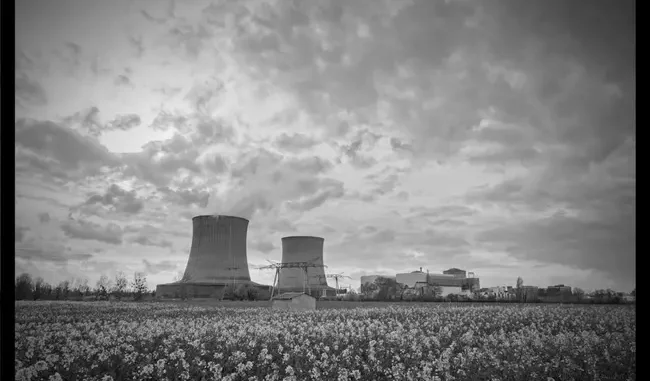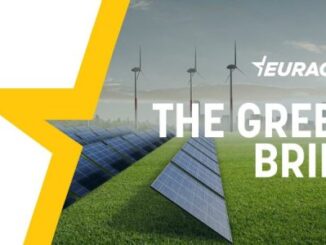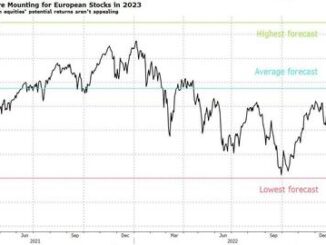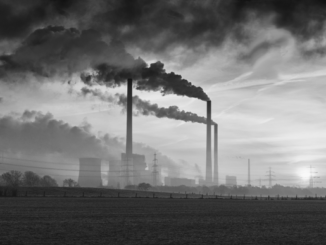
Renewables won’t win the war on climate change alone, says the man Macron has tasked with overseeing an atomic energy revival.
POLITICO. EU BY GABRIEL GAVIN, APRIL 11, 2023Efforts to block nuclear energy from the EU’s green power plans could undermine the fight against climate change, France’s atomic energy czar warned as Germany prepares to shut down its final three nuclear reactors this weekend.
Joël Barre, who was announced in October as the boss of France’s effort to build new nuclear plants, said building more reactors and extending the lives of existing ones is essential to cutting down on the use of fossil fuels — a job that has seen him dubbed “Monsieur Nuclear” by the press.
“If we don’t invest, we clearly face a cliff-edge as our reactors currently in service will see the end of their life between 2040 and 2050,” Barre told POLITICO.
Last year, French President Emmanuel Macron pledged as many as 14 new reactors would be built as part of a “renaissance” of the atomic energy industry, which generates around 70 percent of the country’s electricity. Barre’s team is now working on the construction of six advanced EPR2 reactors, to be built between 2035 and 2042 — ensuring that gas and coal-fired electricity doesn’t surge when old reactors are shut down.
That’s leading to frequent showdowns between the pro and anti-nuclear camps; March saw two such scraps.
One was over the EU’s flagship Net-Zero Industry Act, setting targets for technologies deemed necessary to decarbonize the bloc’s economy. The spat over nuclear delayed the proposal and the end result was a fudge, with atomic power not included in a list of “strategic net-zero technologies” while elsewhere in the text, the definition of net-zero technologies included “advanced technologies to produce energy from nuclear processes with minimal waste from the fuel cycle” and “small modular reactors.”
A similar battle overshadowed the EU’s call to boost renewable energy targets by 2030, with France winning a marginal victory that allows nuclear in limited circumstances.
Nuclear push
Barre made it clear Paris isn’t going to give up the fight.
“We want to have a strategy for nuclear in Europe,” he said. “And on the other hand, countries, mostly Germany, but also Austria and Luxembourg, are opposed to nuclear energy and this is a pity. We need to continue to try to overcome such opposition within the EU.”
He argued that atomic energy does have a role to play as the Continent races to decarbonize.
“I don’t understand the position of Germany because I don’t believe at all that up to the middle of the century they will be able to carry out a zero-carbon strategy based solely on renewable sources,” Barre said.
French President Emmanuel Macron pledged as many as 14 new reactors would be built as part of a “renaissance” of the atomic energy industry | GUillaume Souvant/AFP via Getty Images
However, critics say the French argument is undermined by the problems facing EDF, the government-controlled utility that runs the country’s nuclear fleet.
“Just looking at France, half the French reactor fleet has been offline in 2022; EDF is essentially bankrupt — it’s €64 billion in debt and Macron has been forced to fully nationalize it,” said Paul Dorfman, an associate fellow at the University of Sussex’s Science Policy Research Unit.
EDF has been hit by a number of technical problems this year after faults were found at a number of its power plants. More than a dozen reactors have been taken offline while engineers carry out inspections and conduct emergency repairs and, in March, a major crack was reported at its Penly plant in the north of the country triggering a wave of new repairs that required specialists to be brought in from the U.S.
Clean power
Those championing investing more in renewables say that problems with existing reactors, plus delays and cost-overruns in building new ones, don’t make it an attractive option, and nuclear should be seen as a transition technology rather than the future of clean power.
“Renewables can be put down much quicker than reactors. The key problem for nuclear is it’s too late — we don’t have the time, we don’t have the resources,” said Dorfman.
But scrapping nuclear power — especially existing plants, as Germany has done — carries its own problems, said Leon Cizelj, professor of nuclear engineering at University of Ljubljana and president of the European Nuclear Society.
“The 20 years long and very costly experiment with renewables without nuclear in Germany did not reduce the carbon footprint of German electricity production,” he said.
He also warned that unless the EU starts to invest in research and develop supply chains for new and existing nuclear power, the bloc’s atomic industry will decay.
Barre insisted that nuclear does have a future.
“We cannot carry out consolidated, strong energy policy in Europe without being based on a mix of energy sources — on one side renewables and on the other side nuclear,” he said. “We have to oppose efforts to say there is just one solution — we need a mix.”



